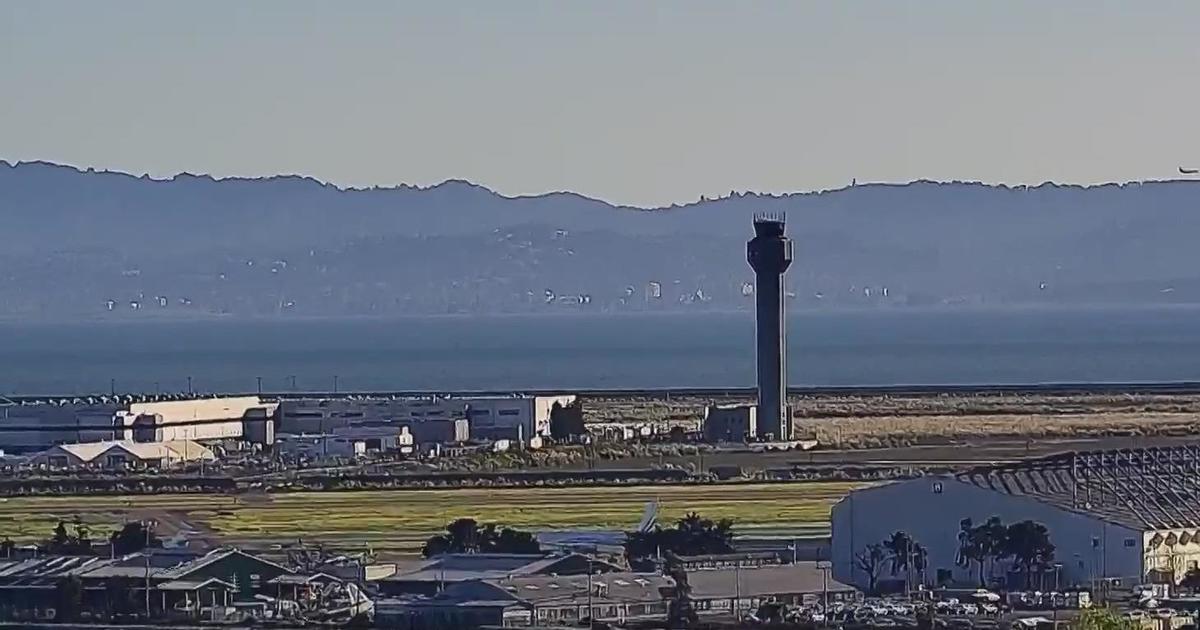Conservative Group Targets Plans For New San Francisco Medical Pot Clubs
SAN FRANCISCO (CBS SF) -- A conservative advocacy group waded into a fight over the pending permits for three medical marijuana dispensaries in San Francisco, depicting them as a threat to neighborhood children.
Backers of at least one of the dispensaries, however, hit back, accusing the group of exploiting fears in the city's Chinese-American and religious community to further its right-wing agenda.
The Pacific Justice Institute, which is known for taking legal action in defense of the religious rights of conservative Christians, held a press conference Monday morning with neighborhood groups opposed to the opening of three planned dispensaries in the Sunset District, Visitacion Valley and Portola neighborhoods.
The group, which unsuccessfully sued San Francisco last year over an open-air urinal at Dolores Park, argued that all three facilities violated state laws prohibiting marijuana facilities within 1,000 feet of schools and other children's facilities.
Brad Dacus, the institute's president, said the group was not challenging the rights granted under state law for marijuana users, but believed that the dispensaries' proposed locations were too close to child care and youth facilities.
"What was compelling to us was the fact that there are churches and religious institutions that are ministering to and serving children in their community that were not being respected," Dacus said.
"The law is the law. It must be universally applied, universally respected for all persons," he said.
The backers of one of the dispensaries, however, a branch of the Apothecarium planned for 2505 Noriega Ave., rejected the criticism, saying that their proposed facility complies with all state laws.
In turn, they accused the Pacific Justice Institute, which has been labeled as an anti-LGBT hate group by the Southern Poverty Law Center, of spreading misinformation about "fear-mongering."
"Good people can disagree about where dispensaries belong," a statement from the Apothecarium said. "No one in San Francisco should be working with a hate group like PJI; no one should be using lies and false fears from keeping people from accessing their medicine."
They were backed in their assertion by local officials including state Assemblyman Rob Bonta, former Supervisor Eric Mar and state Board of Equalization member Fiona Ma, who issued a letter today denouncing the institute's efforts to "gain a foothold in the Asian Pacific American community."
"PJI is using our community's concern for our families and our religious beliefs to advance their own hateful agenda," the letter read.
Dr. Floyd Huen, a medical advisor for an Apothecarium branch located at 2029 Market St., will be co-owner of the Noriega Avenue dispensary along with his wife, former Oakland Mayor Jean Quan.
Huen said he had been brought in in part to help provide bilingual, bicultural service to the Chinese-American community, and was not surprised that the facility was meeting with opposition in a heavily Chinese neighborhood. He described it as, in part, a cultural issue.
Still, the intensity of the opposition to the Noriega facility has been overwhelming. At a neighborhood meeting recently that Huen had been invited to, he was shouted down by an angry crowd and never got to speak.
"I was shocked it should be happening in San Francisco of all places, so the fact that there are some right wing groups involved makes sense," Huen said. "I think the intolerance is the same, whether it's toward gay marriage, whether it's toward civil liberties, or toward use of medical cannabis."
Many of the residents opposed to the dispensary have been convinced that it poses a threat to their children and will make drugs more readily available.
Huen said the data from states and cities where legal dispensaries have opened shows exactly the opposite is true, that legalizing and regulating marijuana actually reduces use and accessibility among youth.
"We're parents ourselves," Huen said. "The whole point is that these facilities do not influence youth negatively, they take drugs off the street."
Supervisor Katy Tang, who represents the Sunset District, said she was a bit surprised by the neighborhood reaction as well.
The Asian culture is very much into what you would consider alternative medicine," said Tang. "If anything, you would think the Asian community would be receptive, but what I'm hearing is broad opposition."
Apothecarium officials said they currently have more than 3,000 patients in the Sunset District, and that the neighborhood's residents have previously voted in favor of both medical marijuana and recreational marijuana legalization measures.
One of the other facilities, located at 2442 Bayshore Blvd., was already approved by the Planning Commission on Jan. 26 after a lengthy hearing with more than 100 speakers, most of them opposed. The facility on Noriega Street and one proposed at 3015 San Bruno Ave. have hearings scheduled for later this year.
Planning department staff said in a report that while the Bayshore location is near sites providing some youth and family programs, it does not violate state laws, which only prohibit locations within 1,000 feet of schools or recreation and community centers serving primarily youth.
Dacus said an appeal of the Bayshore facility's approval is now in the works.



